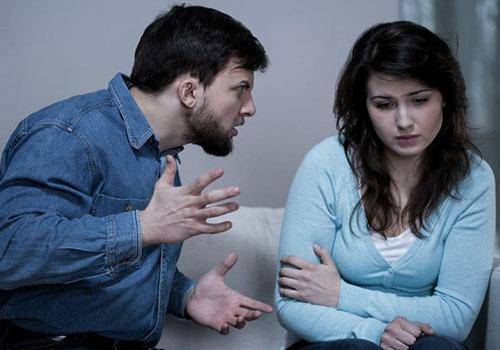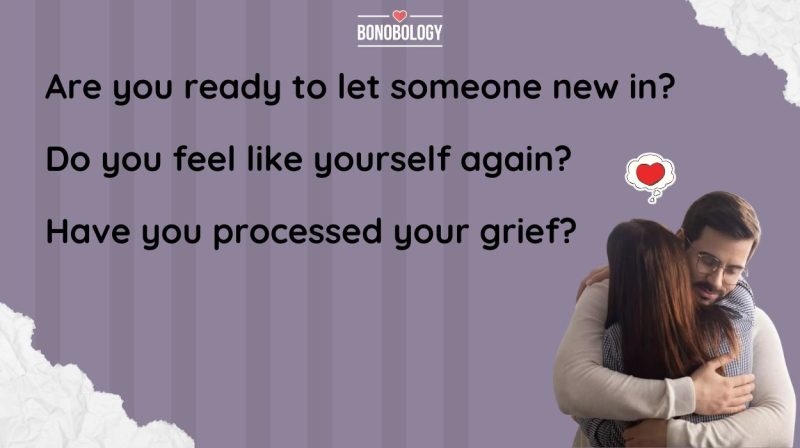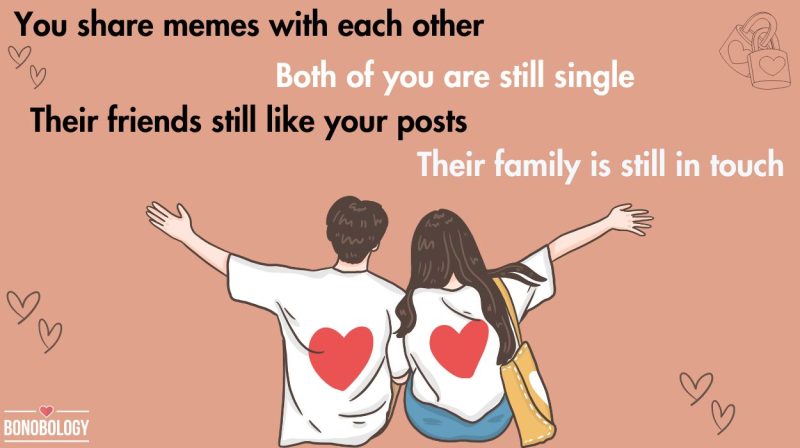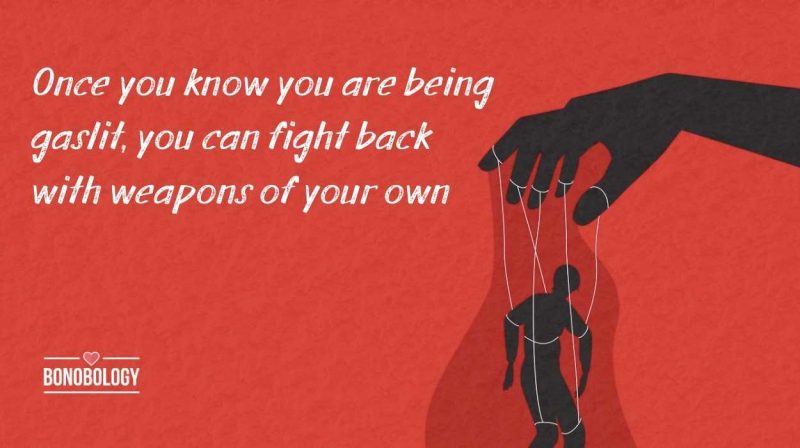Unlike physical abuse, where one has the cuts and bruises to show as evidence, emotional or psychological abuse is difficult to recognize, and therefore confront. Even so, emotional abuse is more common than we think. The only problem is, the signs of it can often slip by under the radar, owing to a lack of information on the subject.
Trying to cope with toxicity when you can’t even label what you’re going through is a near-impossible task. You might end up feeling “stuck” in your relationship, and you probably don’t even know where to start when you try to talk to a friend about it.
With the help of psychotherapist Gopa Khan (Masters in Counseling Psychology, M.Ed), who specializes in marriage & family counseling, let’s take a look at the signs of emotional abuse and what you need to do about it.
What Is Emotional Abuse?
Table of Contents
Also known as psychological abuse, emotional abuse entails an act of humiliation, isolation, intimidation, confinement, verbal assault, or any other derogatory treatment perpetuated to control a partner. It’s the same as physical abuse, but without any form of physical harm. The abuser in this case uses emotions and tweaks their forms as a weapon of his/her choice.
We often shrug off signs of emotional abuse, especially when the abuser says something along the lines of, “Calm down, you’re just overreacting.” That, by the way, is a form of gaslighting in relationships. In the moment, the victim may genuinely start to question their own reactions.
My cousin (let’s call her Jackie) had a love marriage against her family’s wishes. She and her husband (let’s call him Max) started a new life in New Jersey, away from their respective hometowns. They established their own business from scratch. Over the course of 15 years of marriage, they had two beautiful kids, bought a lavish apartment, got a dog, bought two cars, expanded their business globally, went on numerous international trips, and eventually rebuilt their relationship with their parents.
At every family get-together, they seemed the happiest and most in-sync couple ever, with a picture-perfect life. So when one day, Jackie came to her parents’ house with two kids and announced she wanted to file for a divorce, we were shocked. It was then revealed to us that she had been suffering from emotional abuse in the marriage. She later said, “I thought I had to stay because I still love him but I understood that love isn’t worth more than my self-respect.”
“He’d tell me I’m nothing without him, and that he can easily replace me. Every opinion or idea I’ve had is always met with scrutiny, and he’s never listening when I speak. I felt inferior. The only thing that was constant in our relationship was the belittlement,” said Jackie, recounting the types of emotional abuse she went through.
You may think what happened to this couple is a rare case, but unfortunately, it’s not so. Domestic abuse comes in many forms. One may not have the physical evidence to show for it, but the scars left on someone’s sense of existence eat them up slowly. Often, it’s these scars that are difficult for outsiders to see. Emotional abuse is a subtle form of torture, but it harms the victim just as much.
Now that you know what it is, it’s imperative to take a look at the ways in which it can manifest in day-to-day actions. We list out the signs of emotional abuse, so you can decide if you need to take the steps that Jackie did.
Related Reading: How To Cope When Your Partner Is A Control Freak?
What Are The Signs Of Emotional Abuse?
“Most signs of emotional abuse are subtle in the beginning and become intense over time. It usually takes many forms and disguises hence making it difficult for partners to recognize it,” says Gopa. Unlike in the case of physical abuse, the perpetrators of emotional abuse might not even realize that they are being abusive and causing grave harm to their partner psychologically.
Instead, they feel insecure about whether their partner loves them or not, so they try to gain control over them. Emotional abuse in a relationship can range from a taunting remark aimed at belittling you to outright gaslighting that might make you question yourself. Although the forms may vary, the typical signs of emotional abuse are listed below:
1. Emotional bullying
“If you are constantly criticized and called names, or if you’re told that you are not good enough, it’s often a sign of emotional abuse,” says Gopa. Name-calling, using sarcasm to belittle the partner in front of others, isolating the partner from social circles, etc., all indicate not only emotional abuse but also a lack of mutual respect in a relationship.
2. Constantly being accused of cheating
An innate sense of insecurity often leads to your partner doubting your loyalty, even though there may be no reason to do so. “You’re cheating on me, aren’t you?” might feature in a few arguments, and every fight you have leads to you being accused of infidelity.
3. You’re blamed when your spouse is unhappy
Even if it’s the perpetrator who treats the victim harshly, they tend to shift the blame to the victim, accusing them of bad treatment and causing unhappiness. In an emotionally abusive relationship, everything becomes your fault, and everything good that happens is no thanks to you.
4. They attempt to control your life
Is your phone your own? Or is it treated as public property? Perhaps text messages, emails, and social media accounts are scoured through, in an attempt to try and find proof of cheating.

“Emotional abuse in a relationship usually features a partner ignoring the other in their personal and social life. They may even keep you from working, studying, besides controlling your life and making decisions for you. It’s not too uncommon to see the abuser isolating you by keeping you from talking to or seeing family or friends,” says Gopa.
5. Derogatory criticism
You probably won’t see the most constructive criticism from them. All you’re going to hear are harshly-worded insults about your mannerisms, relationship with others, lifestyle choices, etc. Gopa tells us that yelling and screaming, insulting family and friends, and even putting you down in front of others can feature in an emotionally abusive relationship.
6. No justified ground for abusive behavior
You might constantly find yourself wondering, “Why does my husband treat me badly?” or “Why is my wife being so harsh on me?” And yet, you’ll never find any legitimate reason. Often, abusive behavior can stem from what’s brewing inside their mind. And what’s brewing inside is a mix of insecurities and trust issues that lead to an attempt to control your life.
Related Reading: Is Stonewalling Abuse? How to Deal With Emotional Stonewalling?
7. Threats of punishment
Whether they’re acted upon or not, the threats will never stop flowing. You might have faced intimidation, threats of divorce, or even “taking” the kids away. When the victim doesn’t behave according to the whims and fancies of the abuser, they immediately resort to such punishment.
“You might have faced threats about the abuser hurting your family or friends, and they might even have threatened to kidnap the children. You’re probably being blamed for everything, and it wouldn’t be an exaggeration to see them threaten to commit suicide if you leave. Withholding approval, appreciation, and affection to punish you is also a common tactic,” says Gopa.
8. “You’re acting crazy, stop overreacting”, a.k.a, gaslighting
Gaslighting can be difficult to spot, especially if your partner is on their best behavior around other people. As a form of manipulation to make the victim doubt their own sanity and perception, the abuser will say things that question your judgment and critical thinking.
9. Refusal to admit abusive behavior
Unlike physical abuse, in a case of emotional abuse, the perpetrator most often doesn’t realize that what they are doing is causing emotional distress to the victim. Hence, in their view, they are treating the partners just right.
The signs of emotional abuse can be difficult to spot. Especially when the only thing the abuser keeps telling you is that they’re not doing anything wrong. Now that you’ve read up on them, you can now make a more informed decision on what’s going on in your relationship. If, however, the signs match up with what you’re currently going through, let’s take a look at how to deal with emotional abuse.
5 Coping Tips When Battling Emotional Abuse
Living with emotional abuse takes a toll on your health and overa
ll wellbeing. But no matter how badly you are caught up in the web, don’t be afraid to challenge the abuse. Though it may seem impossible to stand up to them, the emotional abuser in your marriage can be tackled too.
“When partners suspect emotional abuse, they wonder, ‘Is this normal?’ or ‘Am I responsible for it?’ However, partners continue to stay in emotionally abusive relationships for years, hoping that their partners will understand what hurts them. They believe that when the abuser understands, it won’t happen anymore. Unfortunately, that’s not how it works, and the person undergoing it has to recognize the behavior and learn to set firm boundaries in the relationships,” says Gopa.
In such a situation, the need to do something to deal with it is paramount. Here are some coping techniques you can use to deal with emotional abuse.
1. Seek professional help
Coping with emotional abuse requires all the support you can get. When you’ve been gaslighted in your relationship for months on end, you might even end up believing the delusions and injustices that your partner forces upon you. With the help of an unbiased professional, you’ll be able to recognize the signs, the damage that has been done to you, and you’ll be able to figure out how to deal with emotional abuse.
“Find a counselor who is experienced in dealing with abuse and trauma issues. It is important to get support to understand the confusion one is going through in an emotionally abusive relationship. If possible, ask the abusive partner to seek counseling with the same counselor.

“Of course, your partner may be hesitant to seek help, since they may not even accept they’re doing anything wrong. However, it’s imperative that the victim seek individual counseling,” says Gopa. If you’re currently coming to grips with coping with emotional abuse, Bonobology has a multitude of experienced counselors willing to help you get through these trying times.
2. Get to the bottom of what’s causing this behavior, and call it out
The controlling behavior of a spouse in marriage is really about their own insecurities, powerlessness, and helplessness. S/he is trying out abusive ways to transfer their own anxieties to you so that they don’t have to deal with them. In their mind, they are just taking steps to make sure you don’t “abandon” them.
Understand their triggers and call them out. “Try to stay in the present, avoid dwelling in the past or in the future about various concerns. With this awareness, one can respond to the abuse in a new way. The goal is to call the abuser on every offense. Sometimes, a stern “Stop it, I am not okay with it when you speak to me like that” is effective. Your authoritative response will give your partner a clear message that you mean what you say and will not tolerate any abuse,” says Gopa.
3. Stand up to your abuser
“Why does my husband treat me like dirt?” If you find yourself asking this question often, then remember that he is practically a bully, and like all bullies, he doesn’t like to be challenged. But your marriage is not a teenage playground, so you need to find productive ways to stand up to him.
During times of emotional outbursts, tell the abuser firmly that you won’t entertain verbal attacks on who you are as a person. “Start setting limits, and clearly state what you will and will not accept from your partner. By firmly setting limits and calling the abuser on every abuse, it is possible the person may find it difficult to deny what is happening, though the abuse may still continue. Granted, setting boundaries is difficult, but this can be worked on during individual counseling,” says Gopa.
4. Ask for changes that will make the relationship better
If you are caught in the web of “he treats me badly yet I don’t want to leave him”, try to stop participating in the conversations that make you feel low about yourself. Tell your partner that you are uncomfortable and walk away from the conversation.
“Asking for changes that will make the relationship better involves regular communication. I recommend couples to set aside ‘coffee dates’ or just some time to discuss issues coming up in the relationship during the week, and to address it proactively,” says Gopa.
5. Know that you have a way out
Last but not least, the biggest reason you are suffering emotional abuse is that, despite all the nasty allegations and manipulations, you wake up telling yourself, “I can’t leave this person, no matter what.” That right there diminishes your sense of self-worth and reduces your power.
To cope with emotional abuse correctly, you need to get your power back. It’s important to remind yourself that there is always an exit door in your relationship that you can take if need be. “Be aware that one can leave an abusive situation. I recommend to my clients in abusive situations to always have a backup plan, keep money, house keys, phones, IDs, and the lot handy so that in any situation, they are able to safely leave.
“For instance, a client of mine was being emotionally abused on the way to a party. My client was able to tell the Uber driver to stop the car and leave the situation and return home safely, informing their family members of the situation. This was possible as they had a backup plan to remove themselves from difficult situations.
“Coping with emotional abuse is not easy. However, if one is willing to set firm boundaries, that alone can help create some positive changes. The abuser is unlikely to change unless they are willing to change or understand that there are consequences for their behaviors. Everyone deserves a healthy and happy relationship, and it’s okay to ask and strive for one,” says Gopa.
Reminding yourself of this, and preparing your mindset accordingly. That in itself will help you deal with the abuse from a place of power, and not fear. When it all gets too much, don’t be hesitant to look for help from family, friends, and counselors.
FAQs
Healing from emotional abuse is often a subjective journey for each individual. Even so, seeking help through individual counseling and support from family and friends will definitely help. Standing your ground, setting firm boundaries and asking for a change in an abusive relationship will help as well.
According to Healthline, the long-term side effects of emotional abuse include anxiety, guilt, social withdrawal (often due to controlling behavior), insomnia and other mental health issues.
While they’re both essentially an attempt at manipulating and controlling a person’s behavior through threats, gaslighting, and coercion tactics, mental (a.k.a. psychological abuse) may predominantly focus on distorting the victim’s sense of reality.
He Would Abuse And Then Apologise — I Got Trapped Into This Vicious Cycle
5 Signs Of Emotional Abuse You Should Watch Out For Warns Therapist
Your contribution does not constitute a charitable donation. It will allow Bonobology to continue bringing you new and up-to-date information in our pursuit of helping anyone in the world to learn how to do anything.























Featured
Am I Moving On Too Quickly After Death Of Spouse—How To Decide
15 Signs You’ll Get Back Together With Your Ex
How To Get Over Trust Issues — A Therapist Shares 9 Tips
Learn How To Forgive Yourself For Hurting Someone You Love
How To Find Peace After Being Cheated On — 9 Tips From A Therapist
How To Forgive A Cheating Husband: 15 Helpful Tips
35 Disturbing Signs Of Gaslighting In A Relationship
What Is Narcissistic Ghosting And How To Respond To It
‘My Husband Starts Fights And Then Blames Me’: Ways To Cope
How To Rebuild Your Life After The Death Of A Spouse: 11 Expert-Backed Tips
My Husband Died And I Want Him Back: Coping With Grief
“Am I Unlovable” – 9 Reasons You Feel This Way
11 Signs Your Girlfriend Was Sexually Abused In The Past And How To Help Her
Coping With Breakups: The Must-Have Breakup Apps For Your Phone
15 Signs You Are Wasting Your Time Trying To Get Your Ex Back
Why Are You Obsessed With Someone You Barely Know — 10 Possible Reasons
33 Phrases To Shut Down Gaslighting And Silence Gaslighters
The Emotion Wheel: What It Is And How To Use It To Build Better Relationships
The Role Of Supportive Relationships In Addiction Recovery
7 Signs You Have A Verbally Abusive Wife And 6 Things You Can Do About It